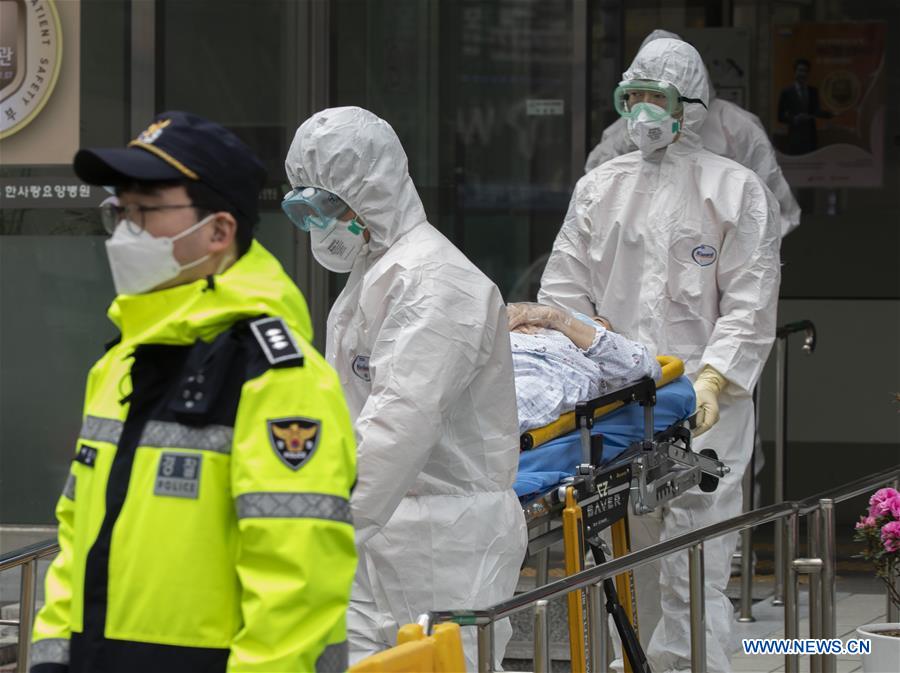
Medical staff transport patients of a sanatorium where mass coronavirus infections occurred to hospital in Daegu, South Korea, March 19, 2020. South Korea reported 152 more cases of the COVID-19 compared to 24 hours ago as of midnight Thursday local time. Seven more deaths were confirmed and 407 more patients were discharged from hospital. (Photo by Lee Sang-ho/Xinhua)
SEOUL, March 19 (Xinhua) -- South Korea reported 152 more cases of the COVID-19 compared to 24 hours ago as of midnight Thursday local time, raising the total number of infections to 8,565.
The newly confirmed cases rose above 100 for the first time in five days, after growing in double digits from Sunday to Wednesday.
It came as another small cluster of infections was found at a nursing hospital in Daegu that has been the epicenter of the coronavirus outbreak in the country. The Daegu city added 97 more new cases.
Seven more deaths were confirmed, lifting the death toll to 92. The total fatality rate came in at 1.07 percent.
A total of 407 more patients were discharged from quarantine after making full recovery, pulling up the combined number to 1,947. The number of recoveries kept surpassing new infections.
The Korea Centers for Disease Control and Prevention (KCDC) decided to update the data once a day at 10:00 a.m. local time from March 10, after having announced it twice a day.
The virus infection soared for the past weeks, with 8,534 new cases reported from Feb. 19 to March 18. The country has raised its four-tier virus alert to the highest "red" level.
The total number of infections in Daegu, about 300 km southeast of Seoul, and its surrounding North Gyeongsang province increased to 6,241 and 1,190 respectively. It accounted for almost 90 percent of the total.
The numbers in Seoul and its adjacent Gyeonggi province came to 282 and 295 each.
Daegu became the epicenter of the viral spread here as the biggest cluster of infections was found in the metropolis with a 2.5 million population. Daegu has been designated by the government as a "special disaster zone."
The Daegu cluster was closely linked to the church services of a homegrown minor religious sect, called Sincheonji, in Daegu. Members of the sect are known to sit on the floor closely side by side during church services.
The cluster infections accounted for about 80 percent of the total, and some 60 percent was traced to the Sincheonji sect.
Since Jan. 3, the country has tested more than 307,000 people, among whom 282,555 tested negative for the virus and 15,904 were being checked.